Our SmartVestor Pro advisors believe debt is dumb, cash is king and investing in thoroughly researched funds is a recipe for long-term success. Of course, developing a viable action plan means more than just simply committing to paying down debt and investing in stock funds. You need to know which debts to pay first, when to invest, how much to invest and into what. By working with a NWMG advisor, you can have the confidence that you have what it takes to adhere to a sound money management strategy. No matter which Baby Step you are on, we’re here for you.
1. Save a $1,000 starter emergency fund.
2. Pay off all debt (ex-housing) using the debt snowball.
3. Save 3 – 6 months of expenses for a fully funded emergency fund.
4. Invest 15% of gross household income in tax-advantaged retirement accounts such as a 401(k) or Roth IRA.
5. Save/invest for your kids’ higher education.
6. Pay off your home early.
7. Build wealth through continued investing and give!
You’re here now, why procrastinate more? Getting started is as easy as 1, 2, 3.
STEP ONE:
Choose your SmartVestor Pro
STEP TWO:
Schedule an introductory call
STEP THREE:
Launch your planning portal
Your NWMG Team
Noah Henson
Ben Jones
*The SmartVestor program is a directory of investment professionals. Neither Dave Ramsey nor SmartVestor are affiliates of National Wealth Management Group or LPL.
What About the Costs?
The first lesson is always free. After we decide to work together you have a choice in how your advisor is compensated. As a hybrid Registered Investment Advisor (RIA), NWMG advisors can engage clients in a fee-based or commission-based relationship.
Fee-Based
In a fee-based, or advisory, relationship investors pay their advisors based on a small percentage of their average account balance. Typically, investors do not pay commissions, are not subject to “back-end” sales charges and can invest in a wide variety of security types while engaged in a fee-based relationship. Advisors who work for their clients under this compensation model are beholden to a fiduciary level standard of care. Advisory fees are negotiated with the Advisor and are typically deducted directly from the investment account in a transparent manner
Commission-Based
Commissions and transaction fees vary depending on the kind of investment. The two most common forms of commission-based investment products are A-share and C-share mutual funds managed by investment companies that specialize in advisor sold mutual funds. Investors purchasing an A-share mutual fund may pay up to a 5.75% up front sales charge plus annual management fees and a reduced 12b1 fee. Investors can qualify for volume discounts called “breakpoints”. Investors purchasing C-share class mutual funds typically do not pay an up-front commission but will be subject to a sales charge if the mutual fund is sold within a specified period. They have higher 12b1 fees on an ongoing basis and do not offer volume discounts. Investors engaging with an advisor under a commission relationship can expect a “Best Interest” standard of care.




